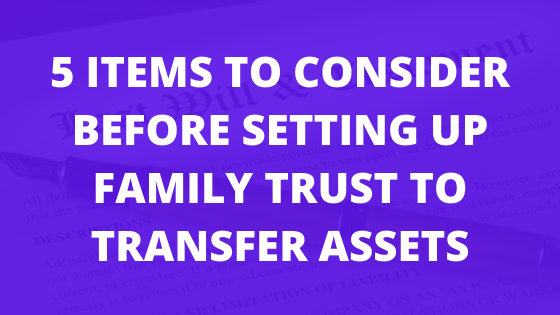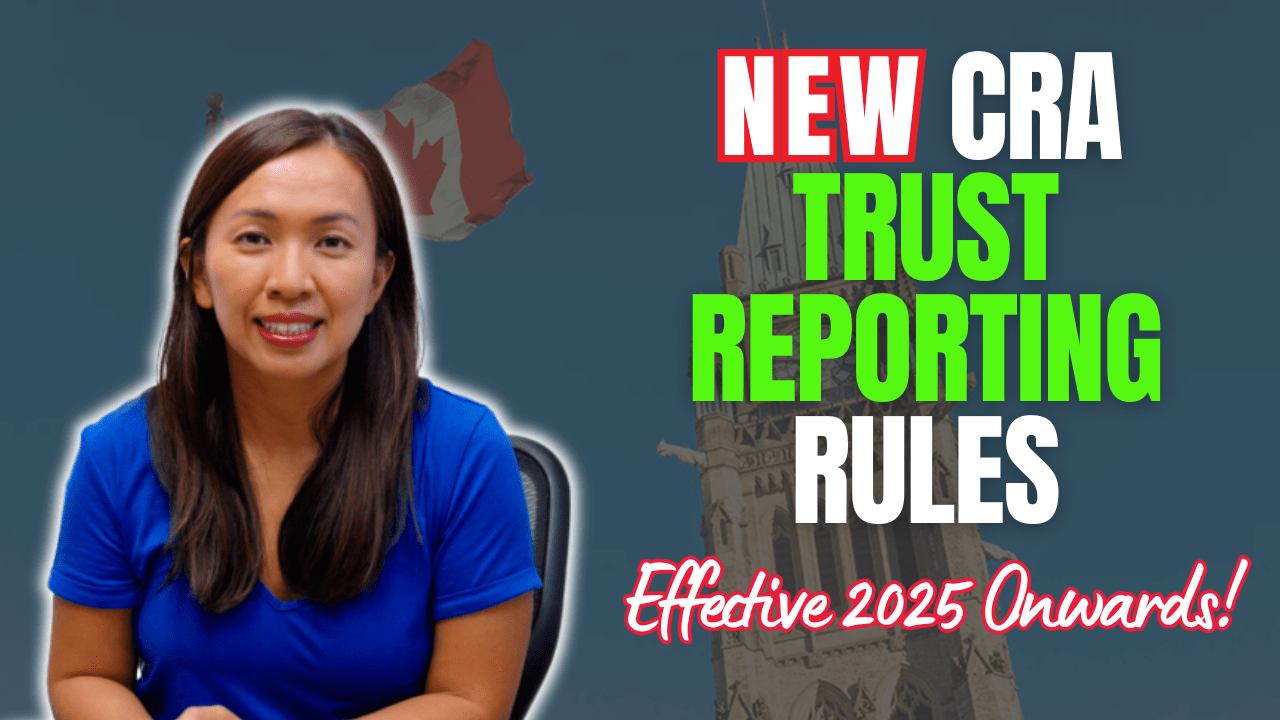As some of you would have known, Erwin and I were at the lawyer’s office a couple weeks ago setting up our will.
Setting up a will has always been on my mind, but it is always one of the lowest priority. I had to literally drag Erwin out of the comfort of his busy-ness to go to the lawyer.
Naturally, the next question is – are there steps we can take to minimize the amount of taxes we need to pay when we pass away?
It is worthwhile to first get an understanding of the amount of income taxes you need to pay.
Myth: I can leave my assets to my kids without paying taxes
The truth is, it really depends. You can leave your primary residence to your kids without paying any income tax provided that you have complied with the criteria under the primary residence section of the Income Tax Act.

Your primary residence would still be subject to probate though.
For your rental properties, the Income Tax Act deems you have disposed of ALL your assets at Fair Market Value at the time of your passing.
Yep, the saying is true – there are only two things certain in life – death and taxes.
If you hold shares of private companies, they’re also deemed to be disposed of at fair market value, similar to the treatment of rental properties.
If you hold portfolio investments (public company or mutual funds) outside of your registered plan, they’re also deemed to be disposed of at fair market value.
For Registered Retirement Saving Plans, you’re required to count the entire balance as income at the time of death.
So, if you have a balance of $500K in an RRSP, you’re then required to count $500K as your income the year of death.
Not fun! Lots of taxes.
Is there anything we can do to minimize taxes?
Some clients asked if they could set up a family trust to avoid death taxes.
In some cases, this could work.
Setting up a family trust, moving all your personal assets to the family trust, having the family trust distribute all the assets to your family members according to your will sounds like a sure win.
- Taxes are triggered when the transfer happens
When you move the assets to the family trust, you trigger a deemed disposition in that moment. You would be liable to pay taxes then.
- Transfer of assets to a family trust often involves incorporation
If you transfer a property directly into a family trust, the trustee is personally liable for all the lawsuits and legal liability that come with owning a rental property.
Transferring your investment properties to the corporation would trigger land transfer tax on the other hand. (Also one reason why I suggest some of my clients set up corporations to own their properties.)
Land transfer tax is calculated based on the fair market value of the property.
- The set up costs are expensive AND family trusts requires their own tax return
Depending on how complicated your situation is, a family trust can be expensive.
This means that you would have to pay for the extra filing cost for the life of the family trust.
Be prepared for the extra costs.
- You are going to lose some control over your assets
When all your assets are transferred to the family trust, the trustee is making all the decisions (governed by the trust agreement) related to the assets owned by the trust.
To a certain extent, you’re losing control over your assets.
If the trustee isn’t making the right decision for you, it can leave you very frustrated.
- You may need to get bank consent
If you still have mortgages attached to the properties, you will need to get bank consent to transfer the property to the corporation.
More often than not, you’re still required by the bank to provide a personal guarantee on the properties. Except this time, you don’t have the assets anymore, you would still have the loan guarantee.
It may even be more difficult for you to get further financing in the future.
Now that I have warned you some of the downside of the setting up a family trust, it does not mean that we are never going to set up a family trust to transfer our assets.
It simply means, caution and calculation should be taken into consideration before setting one up. It is still in my toolbox for tax planning purposes.
Until next time, happy Canadian Real Estate Investing.
Cherry Chan, CPA, CA
Your Real Estate Accountant






Samuel J Perren
Hi Cherry,
I really enjoy your tax blog and share it often with my friends and family. I do have a question about losing control to your trustee – wouldn’t you and Erwin the trustee of your family trust, thus control remains the same as it is now?
Also, my understanding is that assets cannot pass to beneficiaries of the trust without satisfying TOSI rules (they must work for the business for 5 years, etc…), so there is a good reason to have the kids work in the business mowing the lawn or doing book work, or whatever, BEFORE the trust’s 21 year anniversary.
Regarding costs, the tax free transfer of the corporate assets could be tax savings of $MMs depending how much the corporate shares are worth (how large you grow rental portfolio), so jumping all these hoops is probably well worth the extra expense of administering this monster even if the portfolio is “small”: ($10K a year perhaps x 21 years = $210K to save $500K taxes on a $1M deemed disposition, an easy value to get to over a lifetime with only 1-3 rental properties). A $10M portfolio might be tax savings of $3M or more for $210K in admin costs? Seems like great ROI – unless a future socialist government changes the tax laws again!
Anyway, keep up the great content, we love it!
Sam
Cherry Chan
Thank you for your comment. If Erwin & I are the trustees as well as the parties gifting the gifts to the trust, many complicated attribution rules would apply.
There’re many different benefits of holding your assets in a trust, including those benefits that you mentioned. I will release a follow up blog post in subsequent weeks (when we’re more settled with the current situation).
Again, thanks for your comment. Stay safe!